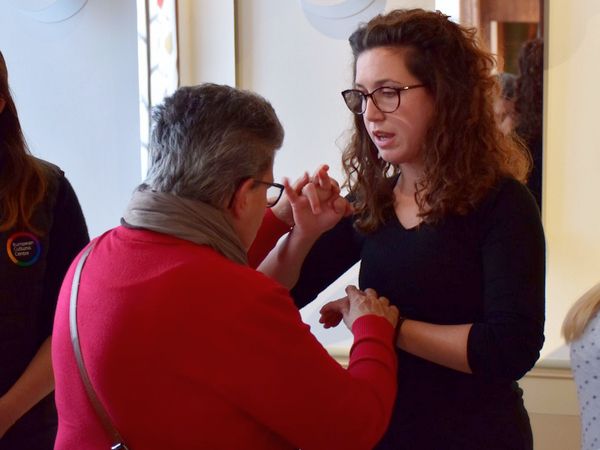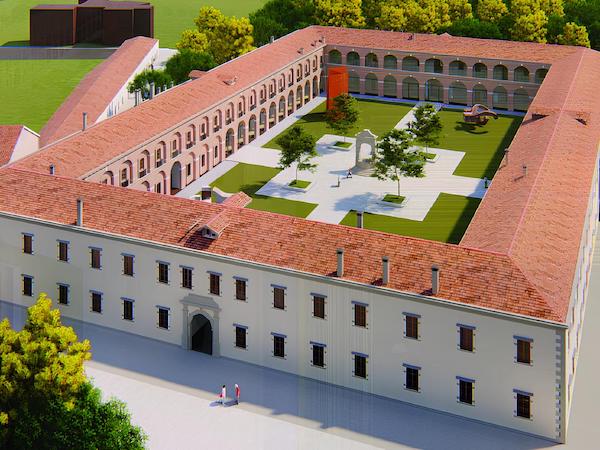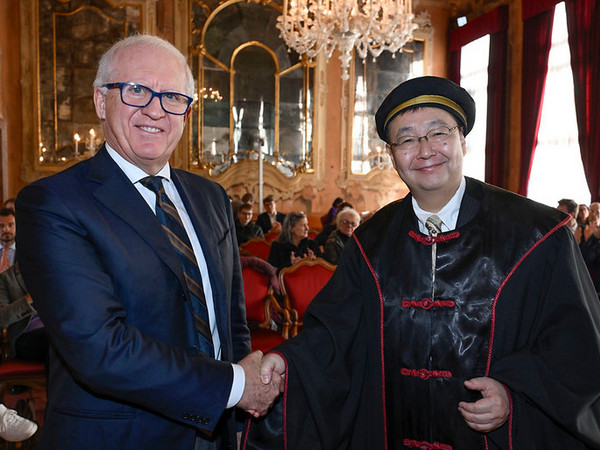The rights of people with disabilities have been upheld: on 19 May 2021, the Italian Parliament approved Article 34-ter of the “Decreto Sostegni” ("Relief Decree"), with which the Italian Republic “recognises, promotes and protects the Italian Sign Language (LIS) and the Tactile Italian Sign Language (LISt)”. LIS and LISt interpreters are now recognised as specialised professionals in translation and interpretation.
“This is a victory not only for the Deaf community, but also for the entire country,” says Anna Cardinaletti, Professor of linguistics at Ca’ Foscari University of Venice. “We have been waiting for this moment for a long time, ever since the United Nations Convention on the Rights of Persons with Disabilities on 13 December 2006. This goal was achieved in other European countries a long time ago. At last, this decree will change the future of the Italian Deaf community and of the hearing people at their side.”
Even though the Italian government was the last European government to recognise LIS, the academic community had already committed to promoting LIS, not only to offer equal rights to Deaf students, but also to promote the research and teaching of LIS.
More specifically, Ca’ Foscari University of Venice was the first university that started to offer LIS courses and it has been committed to the promotion of LIS for twenty years. In 2001/2002, Ca’ Foscari added LIS to the languages that students could specialise in: since then, LIS has been chosen by over 800 BA students and almost 300 MA students, including Deaf students and children of Deaf parents. The language is taught by two Language Assistants who are Deaf and teach their mother tongue.
Ca’ Foscari has also been offering LISt courses for a decade, thanks to the co-financing of the organisation Lega del Filo d’Oro. Ca’ Foscari has been offering courses for LIS interpreters for fifteen years, and currently students can obtain an MA in Interpreting which follows the indications of the European Community. In 2012 a remote video-interpreting service (VEASYT live) was created as a spin-off.
Finally, Ca’ Foscari is involved in LIS research and Deaf studies, and has recently published the first Italian Sign Language grammar in Europe, edited by Ca’ Foscari’s linguists Chiara Branchini and Lara Mantovan. The university has been participating in national and international research projects for years.
Ca’ Foscari has established, with the universities of Catania, Milano-Bicocca, Palermo and Trento, an Inter-university Centre based in Catania. The Centre promotes the teaching of and research on LIS and Deafness, with an interdisciplinary approach. The Centre is ready to face the challenges that the recognition of LIS poses in every sphere of life.
This long-awaited change now needs to be enacted. Deaf and hearing professionals who work with LIS and with Deaf people (interpreters, language and cultural mediators, communication assistants, teachers, support teachers) must have the same access to academic training as professionals of vocal languages. The dignity of LIS and of its community must be recognised also thanks to the formal and substantial levelling of LIS professionals with professionals in other languages.
In Italy the Deaf community which uses LIS includes about 40,000 people. If hearing people are included, it is estimated that LIS is known and used by 100,000 people. LIS is used also by children and hearing people with communication issues (autism, Down’s syndrome, dyspraxia, dementia) for which the use of vocal language is temporarily or indefinitely impossible.
Ca’ Foscari and the Veneto Region are committed to the promotion of LIS and of its potential, as stated in regional law (Legge regionale veneta) no. 11 (23 February 2018).











